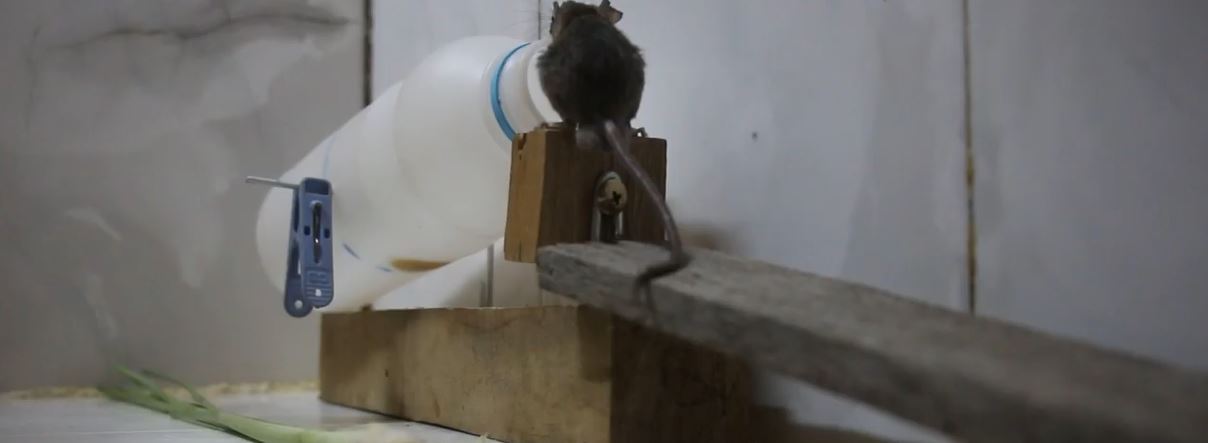House Mouse Repellent

Anyone who has had to deal with a pest in the past knows that preventing them from getting into your home is easier than evicting them once they have already taken up residence. The house mouse is no different, which is why mice repellents are incredibly popular. There are several options available in stores as well as numerous suggestions online and it is normal to be curious about these repellents.
Do They Work?
The first question most people have is whether the house mouse repellents actually work. Some may work temporarily or provide a small amount of relief from a mouse infestation. Overall, however, they will not necessarily be effective. You can still try them if you want, but you shouldn't expect great results. Instead, you will also need to take other preventative measures, such as those mentioned below. To get the best results from using a repellent, combine it with other methods. Here are some of the most popular repellents to consider.
Mothballs
No matter the pest, mothballs always seem to be a popular repellent. Their main ingredient, naphthalene, is a fumigant and it has worked to get rid of some insects when used properly. It won't, however, always prove effective against house mice. There are plenty of anecdotal stories supporting the effectiveness of mothballs, but it also has its risk. Mothballs do not smell good so if you choose to use this repellent, you will have to put up with the odor. You will also have to constantly replace them as the odor fades over time. Even when at their strongest, rodents like house mice tend to simply ignore mothballs. Worst of all, there is even a minor health risk because of the chemicals in these mothballs.
Peppermint Oil
Another common suggestion is peppermint oil and this one has the benefit of giving your home a pleasant smell. There is no danger to using peppermint oil as a house mouse repellent, but you won't notice an improvement. Mice are able to withstand almost any odor and the fumes from the peppermint oil is also likely to rise. This makes it very ineffective against a small animal that stays close to the ground. To prove the ineffectiveness of peppermint oil, consider that you can catch a mouse in a trap baited with it.
Cats
One natural repellent for house mice that may actually work is getting a cat. Since cats are the natural predators of these animals, the mice will not like the smell and your cat may even get in some hunting practice. Keep in mind, however, that owning a pet is a huge responsibility and a lifelong commitment. Therefore, you should never select this option unless you truly want a cat and are able to take care of it for its entire life.
Other Remedies
In addition to these options, many people also suggest using predator urine, such as that of a cat or coyote. They also suggest things like human hair, toilet cakes, and ammonia. The thing to remember, however, is that none of these will truly work to keep mice away unless you also take other preventative measures.
Store-Bought Repellents
There are some store-bought mice repellents available, but it is easier to find poison than repellent. Using one of these repellents will typically be ineffective; instead, you will be essentially wasting your money. They may also contain chemicals such as the naphthalene found in mothballs or another chemical combination that will be harmful to your family or put you at risk.
Mechanical Repellents
There are two types of mechanical house mouse repellents for sale and unfortunately, neither works very well. There are sound machines that emit a high-pitched noise that will theoretically annoy mice and other pests, but is inaudible to human ears. Some people will actually be able to hear these and mice will typically ignore them. You will also find machines that produce flashing, bright lights. Since mice are nocturnal, they should dislike this. In reality, however, they may find it annoying, but they put up with the lights because they like having comfortable shelter with easy access to food and water.
What To Do Instead
If house mouse repellents don't work, then you may wonder what you should do instead to keep mice away. The most important thing to do is make sure they don't have a way to get into your home. This means carefully examining your home for potential entry points. Seal up any crack, gap, or crevice you find and make sure that there are no gaps around windows, doors, pipes, and vents in particular.
You should also try to keep your home as clean as possible as mice are attracted to shelter with food nearby. Put leftovers away promptly, keep food in sealed containers, and wipe off counters after cooking. Also, make sure to sweep the kitchen regularly to collect fallen food that may attract mice.
Read the How to get rid of mice page for helpful information and to learn more about House Mouse Repellent

